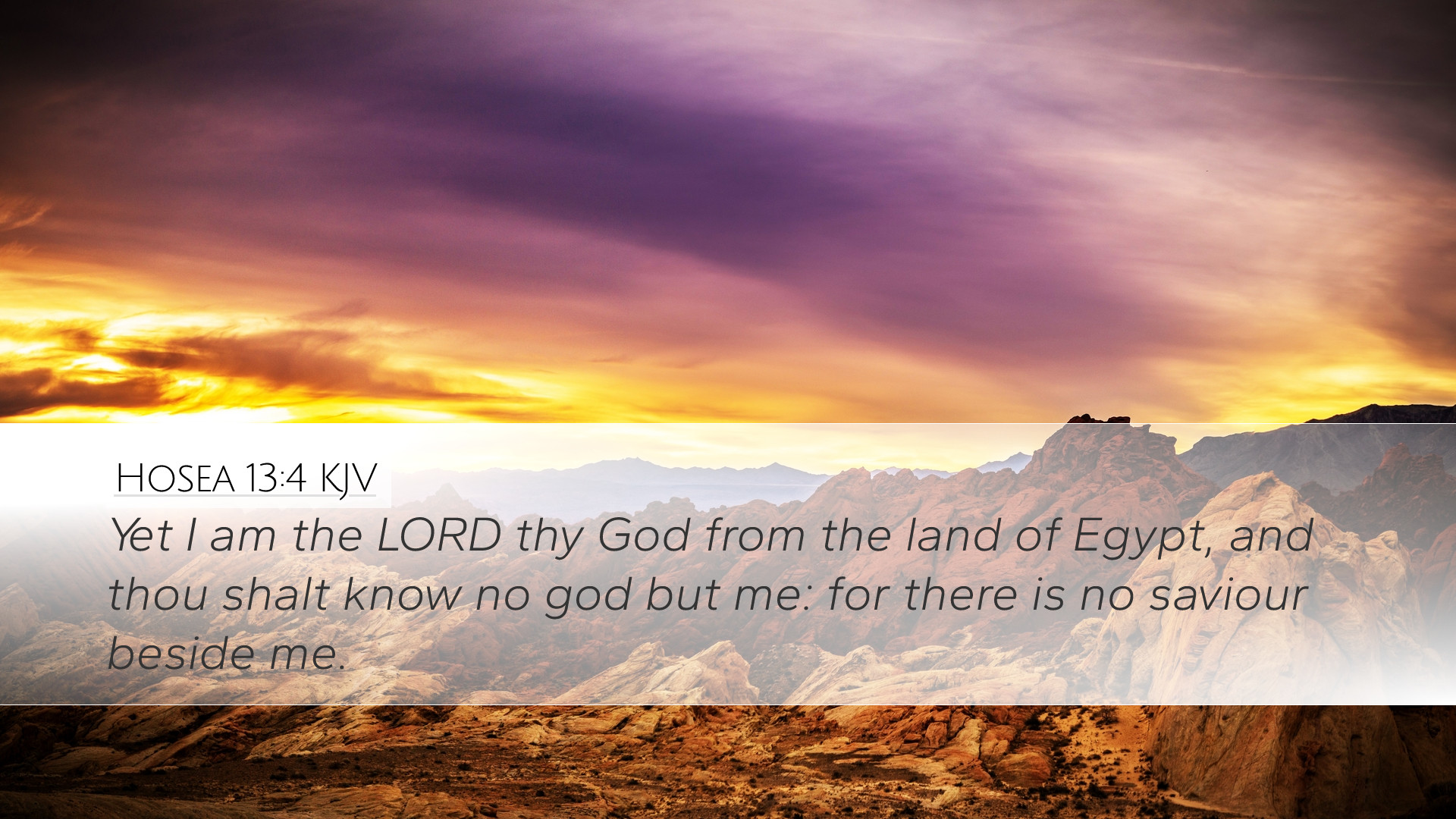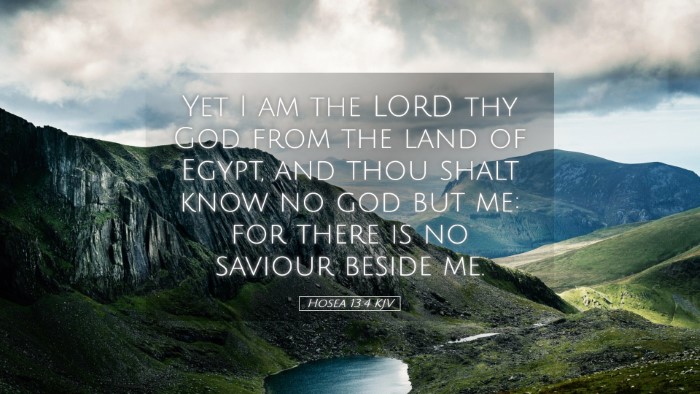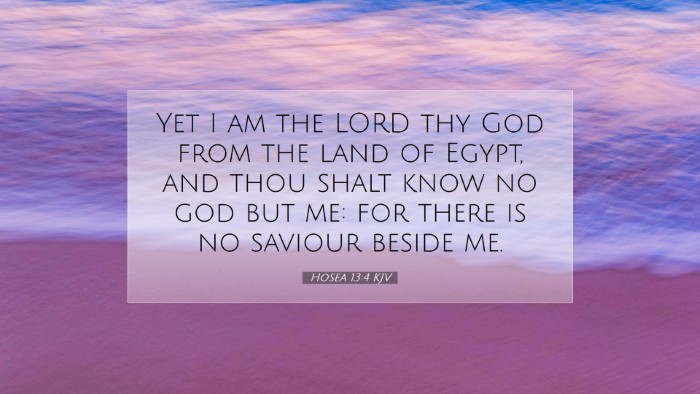Old Testament
Genesis Exodus Leviticus Numbers Deuteronomy Joshua Judges Ruth 1 Samuel 2 Samuel 1 Kings 2 Kings 1 Chronicles 2 Chronicles Ezra Nehemiah Esther Job Psalms Proverbs Ecclesiastes Song of Solomon Isaiah Jeremiah Lamentations Ezekiel Daniel Hosea Joel Amos Obadiah Jonah Micah Nahum Habakkuk Zephaniah Haggai Zechariah MalachiHosea 13:4
Hosea 13:4 KJV
Yet I am the LORD thy God from the land of Egypt, and thou shalt know no god but me: for there is no saviour beside me.
Hosea 13:4 Bible Commentary
Commentary on Hosea 13:4
Bible Verse: "Yet I am the LORD your God from the land of Egypt, and you shall know no god but me; for there is no savior besides me." (Hosea 13:4)
Introduction
This verse stands as a crucial declaration of God's sovereignty and His exclusive claim as the sole deity of Israel. It encapsulates the essence of Israel's covenant relationship with Yahweh, emphasizing monotheism and divine deliverance.
Historical Context
The Book of Hosea was written during a tumultuous period in the history of Israel. The nation was rife with idolatry, social injustice, and moral decay. Hosea's prophetic messages aimed to rebuke Israel's unfaithfulness and to call them back to their covenant obligations to Yahweh.
Theological Insights
- Yahweh as the Exclusive God: The divine assertion "I am the LORD your God" highlights God's uniqueness and exclusivity. This sentiment is a frequent theme throughout the Old Testament, reinforcing the concept that Israel's identity is tied solely to Yahweh.
- Remembering Deliverance: The reference to Egypt serves as a reminder of God's redemptive work. The Exodus is a foundational event in Israel's history, showcasing God's power and commitment to deliver His people from bondage.
- The Nature of Salvation: The phrase "no savior besides me" underscores the concept of divine salvation. God is the sole source of salvation, and this truth speaks against Israel's inclination to seek help from foreign gods or nations.
Commentary from Public Domain Sources
Matthew Henry
Matthew Henry emphasizes the constancy of God's love and deliverance, pointing out that God had been the God of Israel ever since their deliverance from Egypt. He highlights the folly of Israel's idolatry in light of the profound experience of their deliverance and God's continual provision for them.
Albert Barnes
Albert Barnes points out that the knowledge of God as the sole deity is not only a command but a profound calling for all generations. He stresses that Israel's acknowledgment of God should lead them to reject all forms of idolatry, emphasizing that true knowledge of God brings about a moral imperative for faithfulness.
Adam Clarke
Adam Clarke expands on the historical significance of the phrase "from the land of Egypt," noting that it serves as a strong reminder of God’s past actions. He discusses the implications of forgetfulness among the Israelites concerning their history and their covenant obligations, urging an understanding that true worship and faithfulness stem from recognizing God’s past interventions.
Application for Today
For pastors, students, and theologians, Hosea 13:4 serves as a powerful reminder of the importance of recognizing God’s sovereignty in our lives. In a world where many 'gods' compete for our attention, it is essential to reaffirm the belief in one true God who has redeemed us. The call to exclusivity in worship remains relevant, encouraging believers to examine their devotion and eliminate any modern forms of idolatry.
This verse also challenges the church to reflect on its identity in Christ. Just as the Israelites were reminded of their history and God's mighty acts, contemporaries must remember their own experiences of God's saving grace and be faithful witnesses of that truth in a pluralistic society.


